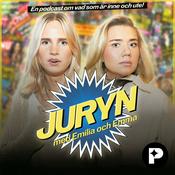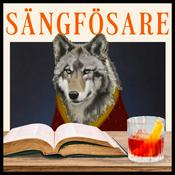276 avsnitt
Rants about the Texas Caper, Abuelitas Hating Nature, Asphalt Heat Islands, etc
2026-1-28 | 1 h 31 min.Ad-free episodes of the CPBBD podcast can be heard at www.patreon.com/crimepaysbutbotanydoesnt
In this episode we talk about South Texas Development, remnant thorn forests surrounded by McMansions, the Asphalt Heat Island, the South Texas Caper (Quadrella incana, Caper Family - Capparaceae, Mustard Order - Brassicales), grannies that hate street trees Crime Pays fan appreciation, Fighting City Hall for native scapes, general societal ignorance regarding the living world, Jack faking his own death in order to eat more hot dogs and more.- Rants about the plant life of the state of Hidalgo Mexico, including but not limited to Cephalocereus senilis, Fouquieria fasciculata, Fouquieria purpusii, Magnolia scheidiana, obsidian piles, and more.
All episodes of The Crime Pace podcast are available for ad-free listening on the Patreon at : https://www.patreon.com/CrimePaysButBotanyDoesnt
Mexico Plants Checklist : https://drive.google.com/file/d/1a5GcJ39ysO_n2XbsazLZeyF9H1wDi4Zx/view?usp=drivesdk
Diversidad Floristica Oaxaca : https://drive.google.com/file/d/1-EXwZV3FOd5sahIE2wlnUmqN_JcLC4bB/view?usp=drivesdk - In this episode we rant about cacti that grow in ephemeral lagoons, 1500 year old Montezuma Cypresses, cryptic cacti that grow in salty mud basins, Mexican Jays dispersing weeping pinion pine seeds, a fern that grows out of marble, how the summer-wet/winter-dry habit affects some carnivorous plant forms, and more...
Reminder that episodes of this podcast are available ad-free on the Crime Pays Patreon at www.patreon.com/crimepaysbutbotanydoesnt - Ad-Free episodes of the Crime Pays But Botany Doesn't podcast are available on the Patreon at
www.patreon.com/CrimePaysButBotanyDoesnt
Rollie Williams is host of the youtube series "Climate Town". In this episode, we talk about "supplying demand" Capitalism, the Oil Lobby, why certain interests are just so dang good at propaganda, how the CEOs became the heroes and the scientists became the bad guys, palm oil plantations, ethanol, government-sponsored cheese caves and more.
Fler podcasts i Komedi
Trendiga poddar i Komedi
Om Crime Pays But Botany Doesn't
Why do some plants grow where they do? How can geology cause new plant species to evolve? Why are some plants pollinated by flies, some by bats, some by birds, and others by bees? How does a plant evolve to look like a rock? How can destroying lawns soothe the soul? This is a show about plants and plant habitat through the lens of natural selection and ecology, with a side of neurotic ranting, light humor, occasional profanity, & the perpetual search for the filthiest taqueria bathroom.
Podcast-webbplatsLyssna på Crime Pays But Botany Doesn't, Vi var här först och många andra poddar från världens alla hörn med radio.se-appen

Hämta den kostnadsfria radio.se-appen
- Bokmärk stationer och podcasts
- Strömma via Wi-Fi eller Bluetooth
- Stödjer Carplay & Android Auto
- Många andra appfunktioner
Hämta den kostnadsfria radio.se-appen
- Bokmärk stationer och podcasts
- Strömma via Wi-Fi eller Bluetooth
- Stödjer Carplay & Android Auto
- Många andra appfunktioner


Crime Pays But Botany Doesn't
Skanna koden,
ladda ner appen,
börja lyssna.
ladda ner appen,
börja lyssna.






























